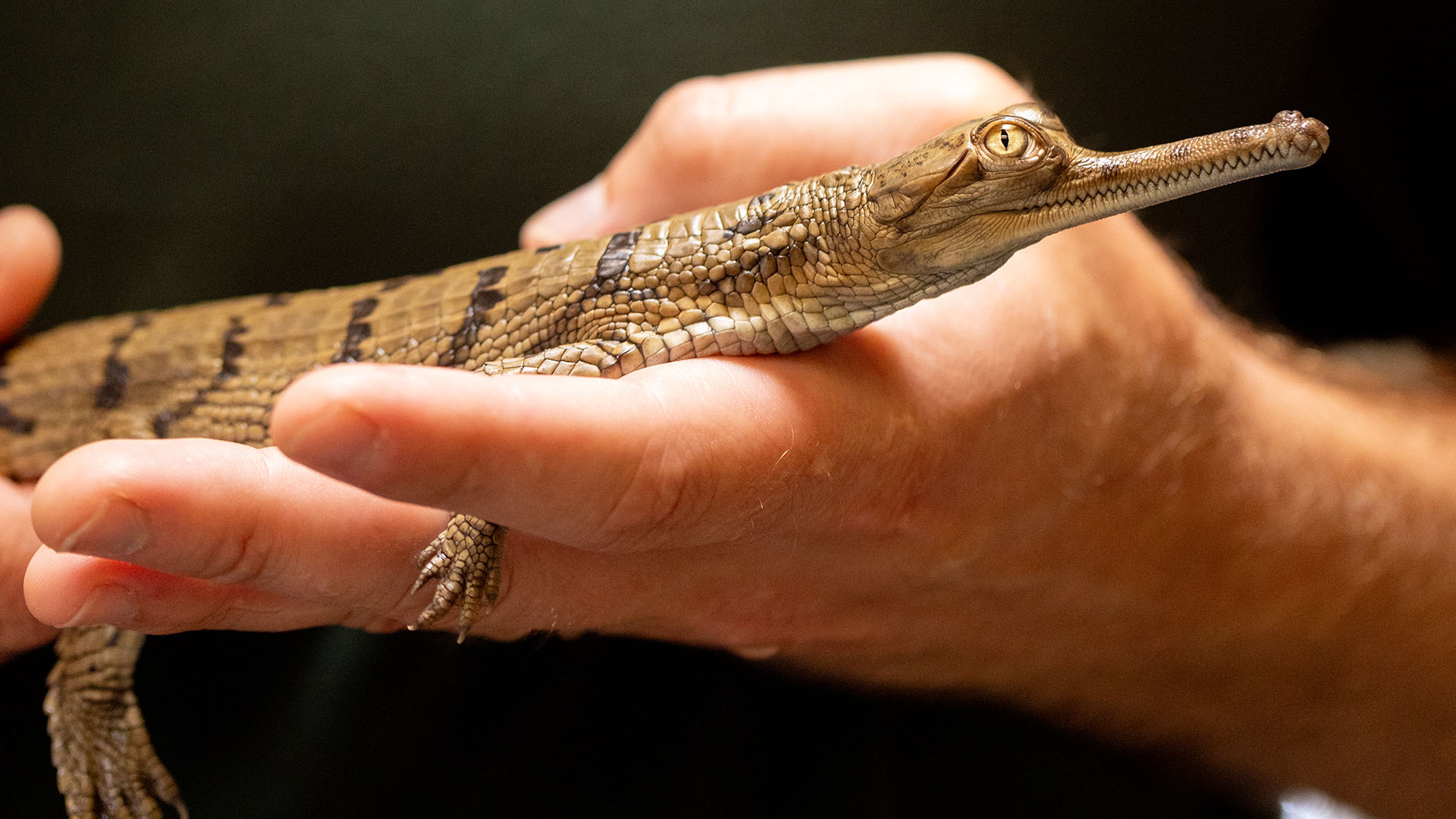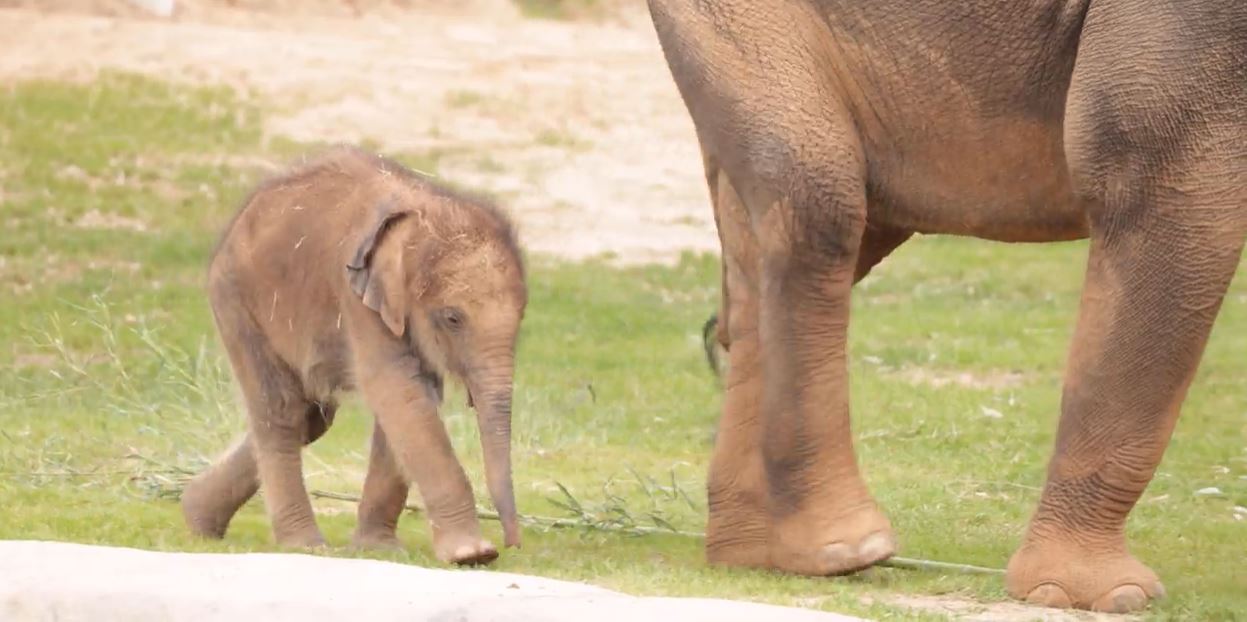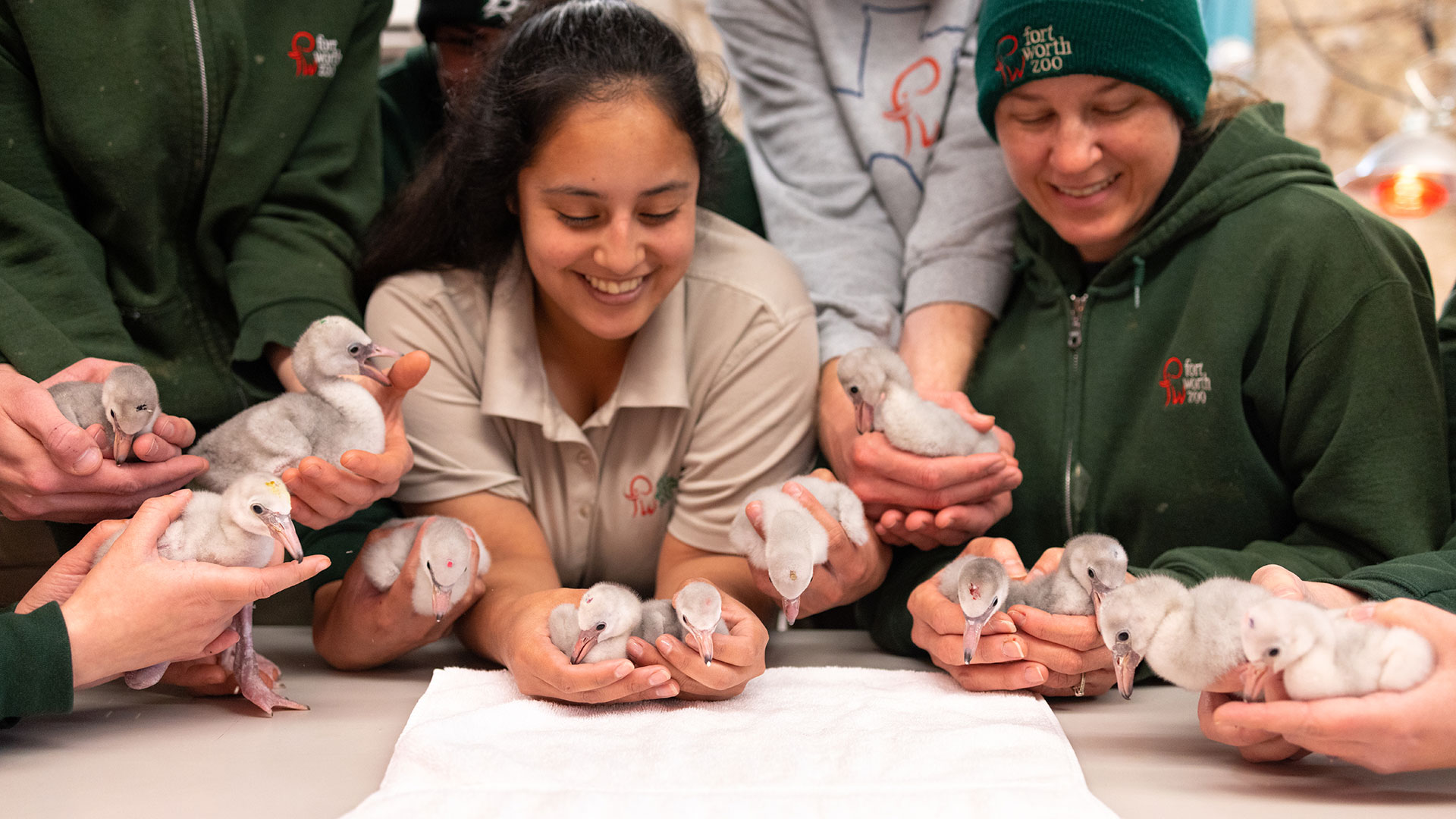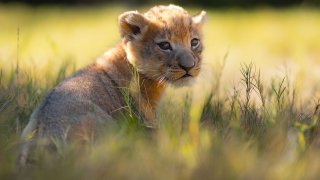
The Fort Worth Zoo says a baby African lion cub born at the zoo late last year is imitating predator-prey behaviors and may soon be introduced to his father and other members of the pride.
The cub, named Moja, weighed just over 2 pounds when he was born Oct. 20, 2023, to mother Saba and father Jabulani. Moja is now 16 pounds and the zoo said he's starting to practice some innate behaviors, like playing with mom's tail and chewing on her hindquarters.
"For the last few months, Moja has been behind the scenes growing and bonding with Mom, while keepers have kept a close eye on his development and wellbeing," the zoo said in a statement Thursday.
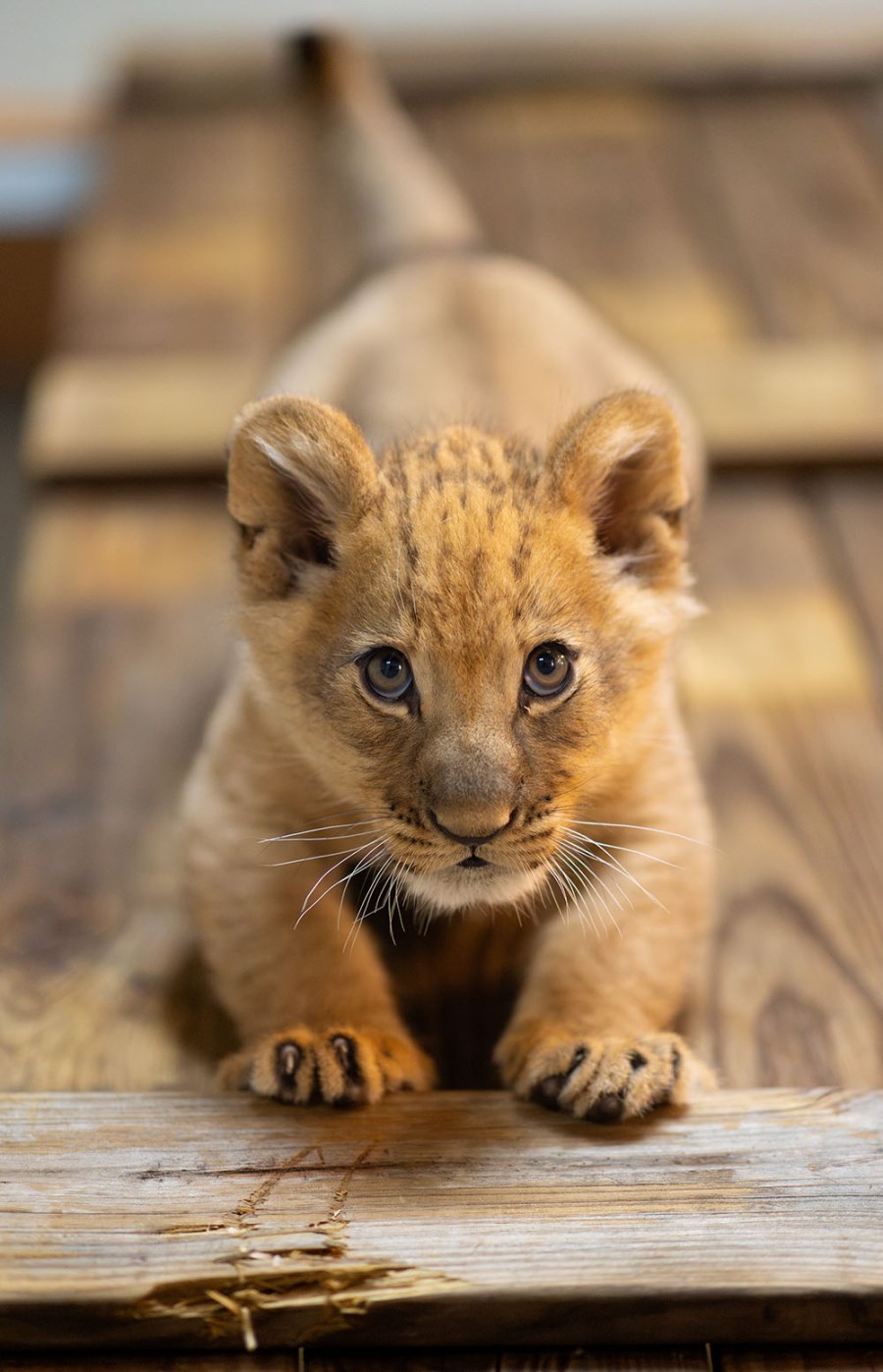
Get top local stories in DFW delivered to you every morning. >Sign up for NBC DFW's News Headlines newsletter.
Saba is displaying typical behavior as well, frequently nursing, bathing, and playing with Moja and carrying him around the den.
The zoo said Moja hasn’t met his dad yet or the other adult female, Abagabe, but introductions will be planned soon as he continues to grow.
Moja also hasn't been viewed by the public just yet. The zoo said they want to make sure he's big enough and strong enough to navigate the zoo's new Predators of Asia & Africa habitat, including the water features.
Moja, pronounced Mowja, is Saba's first cub and the first born at the Fort Worth Zoo since 2015. Moja, in Swahili, means the number "one."
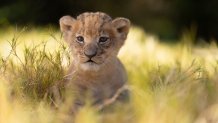
Saba, Jabulani, and Abagabe all came to the Fort Worth Zoo in 2012 after being born at a South African wildlife facility.
"When this pride made the Zoo their home, it introduced a new bloodline of lions into North America, varying the gene pool," the zoo said in their statement. "African lions are a vulnerable population according to the International Union for Conservation of Nature’s (IUCN) Red List."
The zoo said the IUCN says the population of African lions is continually decreasing and that the birth of Moja is both a conservation success and another advancement in diversifying the African lion bloodline in the United States.
The Fort Worth Zoo is part of a cooperative breeding program among North American zoos to help ensure a genetically diverse and thriving population of lions.

